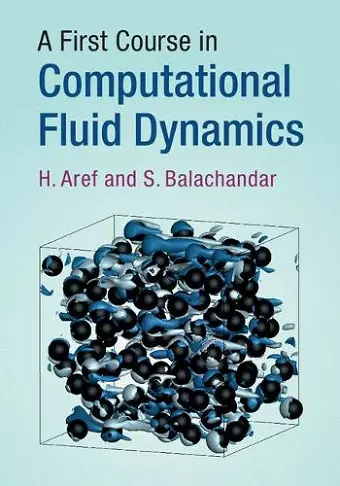A First Course in Computational Fluid Dynamics
H Aref author S Balachandar author
Format:Paperback
Publisher:Cambridge University Press
Published:12th Oct '17
Currently unavailable, and unfortunately no date known when it will be back
This paperback is available in another edition too:
- Hardback£125.00(9781107178519)

This book provides a broad coverage of computational fluid dynamics that will interest engineers, astrophysicists, mathematicians, oceanographers and ecologists.
A broad and fundamental coverage of computational fluid dynamics (CFD), explaining basic numerical methods and offering a rigorous introduction to CFD. This book emphasises the exploration of fluid science through computation and is an ideal text for any course in this area.Fluid mechanics is a branch of classical physics that has a rich tradition in applied mathematics and numerical methods. It is at work virtually everywhere, from nature to technology. This broad and fundamental coverage of computational fluid dynamics (CFD) begins with a presentation of basic numerical methods and flows into a rigorous introduction to the subject. A heavy emphasis is placed on the exploration of fluid mechanical physics through CFD, making this book an ideal text for any new course that simultaneously covers intermediate fluid mechanics and computation. Ample examples, problems and computer exercises are provided to allow students to test their understanding of a variety of numerical methods for solving flow physics problems, including the point-vortex method, numerical methods for hydrodynamic stability analysis, spectral methods and traditional CFD topics.
'The strength of this book lies in its emphasis on a complete presentation of the underlying theories followed by clear steps and concise formulation applied to a plethora of problems, which include basic numerical schemes such as Euler and Runge-Kutta methods and relatively advanced schemes such as the pseudo-spectral method, spectral methods with body fitted grids, and the immersed boundary method … These attributes make it highly attractive as a technical elective for engineering upperclassmen (following an introductory course in fluid mechanics) and forgraduate students, including those studying applied mathematics. Recommended.' R. N. Laoulache, Choice
ISBN: 9781316630969
Dimensions: 247mm x 175mm x 19mm
Weight: 810g
404 pages